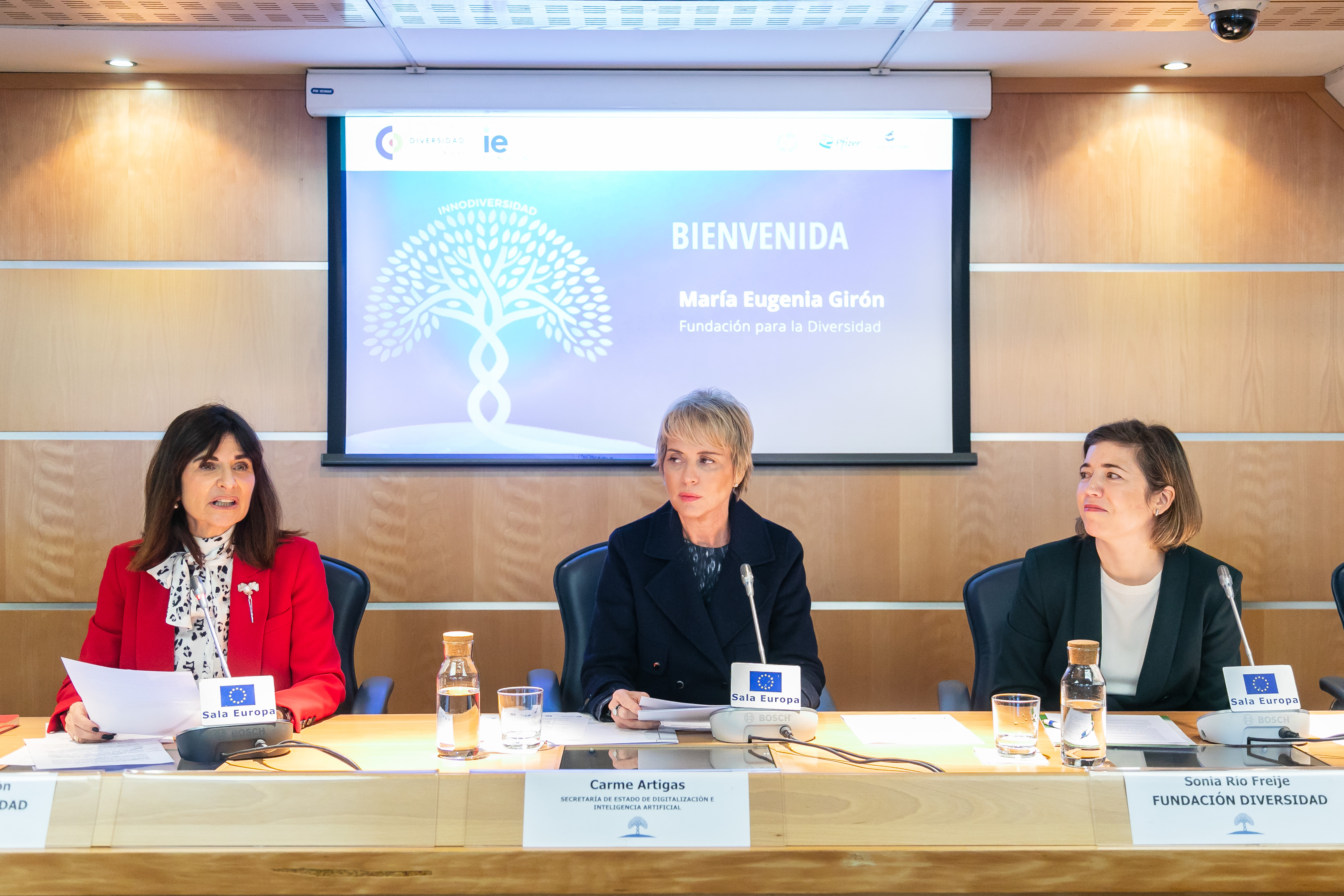Spanish companies double their commitment to Diversity and Innovation

date: 14/02/2023
Carme Artigas, the Secretary of State for Digitization and Artificial Intelligence, was in charge of opening the event, and the closing speech was held by Irena Moozova, Director of Equality and European Citizenship of the European Commission, who sent a video message supporting this initiative.
The report “Innodiversity in the Spanish business 2019-2022” is the third edition of an ongoing study about innodiversity, a ground-breaking concept that ties innovation and diversity together. Innodiversity is the organisational ability to manage diversity and innovation in order to improve the company’s competitiveness.
This study was born with the objective of analysing the Spanish companies in order to diagnose the progress made in matters of diversity and innovation and, with the data obtained, guide companies towards improvement in these areas. More than 700 companies have taken part in the study since 2019, providing a large and significant sample of the state of the business.
There are so many valuable lessons to learn from a study such as this one, but here are our five main lessons learnt from this study:
1. Without data, management is out of the question.
Measuring progress is key to understanding the challenges ahead. While innovation is certainly on a rise, measuring said innovation is not as common. The challenge for companies now is to share their knowledge and progress in diversity in order to improve their diversity management.
2. Managing inclusion, crucial to integrate all groups.
Inclusion is necessary for the integration of the demographic diversity groups (women, people with disabilities, LGBTQ+ community, seniors), since they are more likely to encounter significant barriers for their professional growth.
3. Managing the sense of belonging allows us to benefit from the experience and ideas of everyone in the organization.
The sense of belonging, which encapsulates both experiential diversity and cognitive diversity, is more valuable for companies than ever. The business industry has learnt about the importance of this aspect and have taken steps towards implementing cognitive diversity criteria in all their processes.
4. To manage inclusion is to manage the 3 R’s: Responsibilities, Recognition and Rewards
Only 63% of companies have a dedicated unit for innovation, 60% of companies recognize the innovative activity of their individuals, and 40% of companies have economic incentives for innovation.
5. The best recipe for managing innodiversity: Cooperation.
Managing innodiversity is only possible through cooperation between diversity and innovation units.
The knowledge obtain through these 4 years of work is key to understanding the road companies must take in order to better their progresses in diversity, inclusion and innovation. It is also a great example of what can be achieved when academics, the Diversity Charters and companies work together.
The study, along with more information on this topic, is available in Spanish at Fundación Diversidad website.
